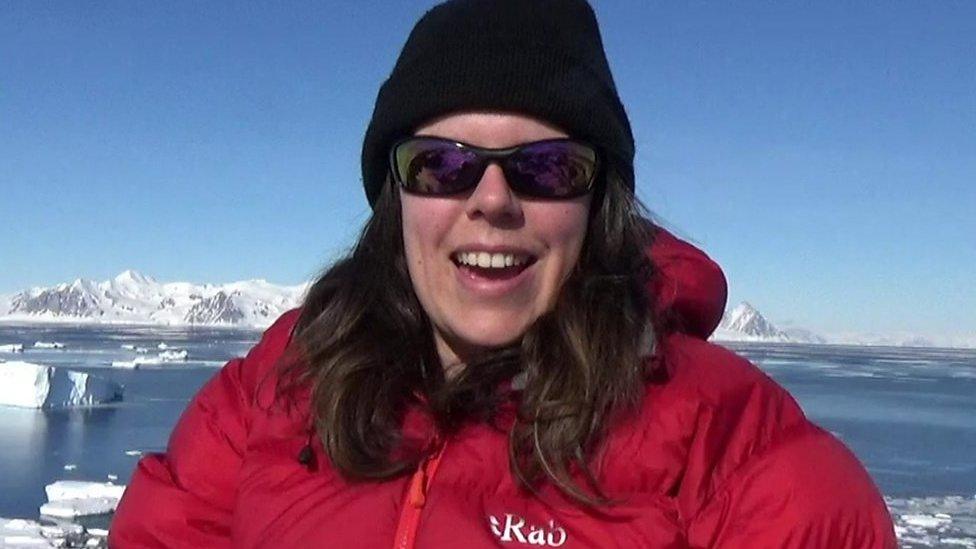Climate anxiety: Survey for BBC Newsround shows children losing sleep over climate change and the environment
- Published
- comments
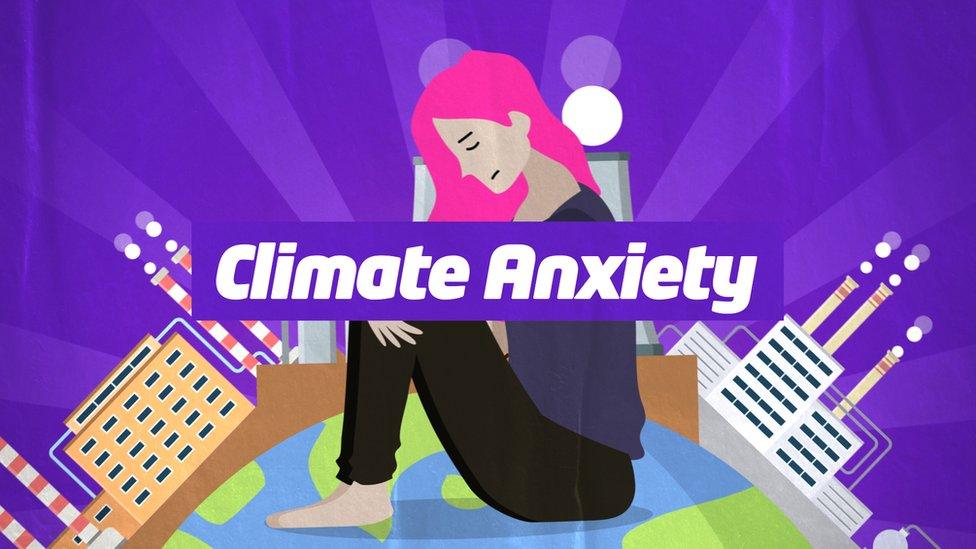
How do you feel when you think about climate change and the state of the planet? Do you feel optimistic, worried or uncertain?
We at Newsround know young people are passionate about the environment, so we wanted to find out more about how you feel about climate change and what's being done to tackle it.
We also wanted to know how you felt about the impact changes to the environment could have on your future.
When asked about their futures:
Most children told us they are worried about the impact that climate change will have on them when they're older, and
One in five have even had a bad dream about it.
But when asked about the action being taken by grown-ups to tackle the problem:
Two in five don't trust adults to tackle the challenges that climate change presents, and
Two-thirds say leaders aren't listening enough to young people's views.
Climate anxiety: Are worries about the environment keeping you awake?
We worked with a specialist company called Savanta-ComRes to do a survey of 2,000 eight to 16-year-olds and what we've learned shows that young people are frustrated and anxious about what's happening.
We've summarised the main themes below.
You can take the survey yourself, and see how other young people responded to it here. We also want to hear what YOU think. You can also leave a comment below.
If you cannot see the quiz, click here.
What you told us in the survey
How do you feel about the state of the planet?
We asked aver 2,000 young people aged eight to 16 a series of questions about their attitudes to climate change and to the environment.
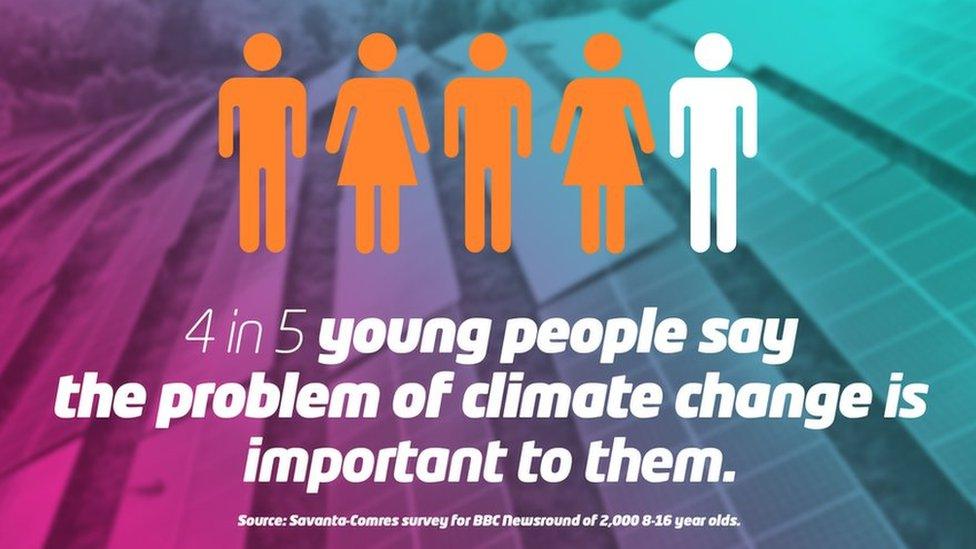
Four out of five of them (80%) said the problem of climate change was important to them, with over a third saying it was very important.
Just three out of every 100 said that the environment wasn't important to them.
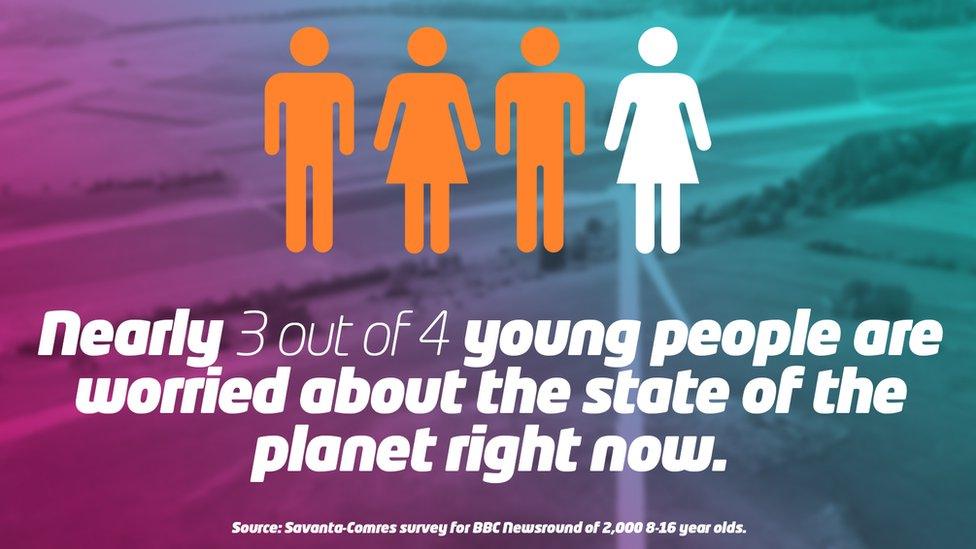
Nearly three quarters (73%) said they are worried about the state of the planet right now - including 22% who say they are very worried.
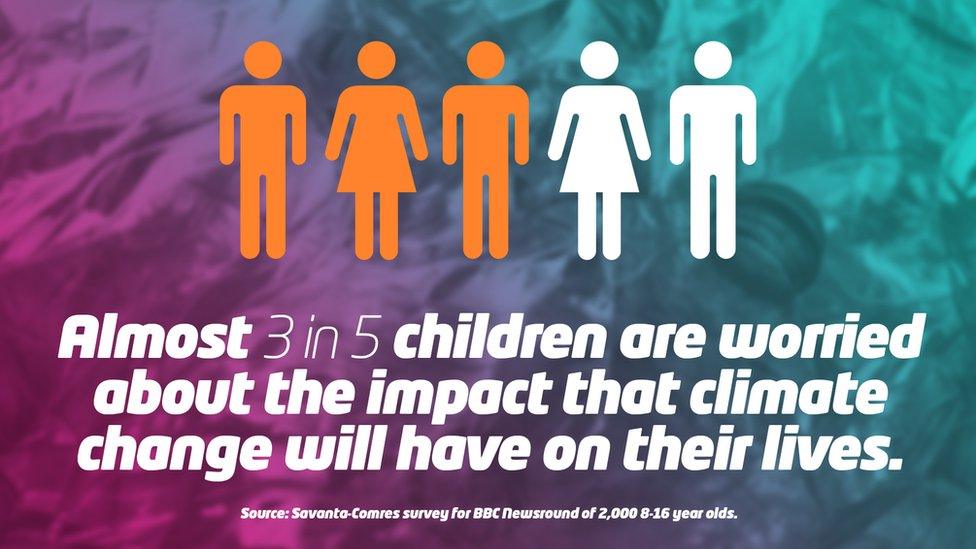
When asked about their futures, almost three in five (58%) children said they're worried about the impact that climate change will have on their lives.
How are children being affected?
These worries and concerns about climate change can come out in unusual ways.
Nearly one in five of those we asked admitted to having a bad dream about climate change (19%)
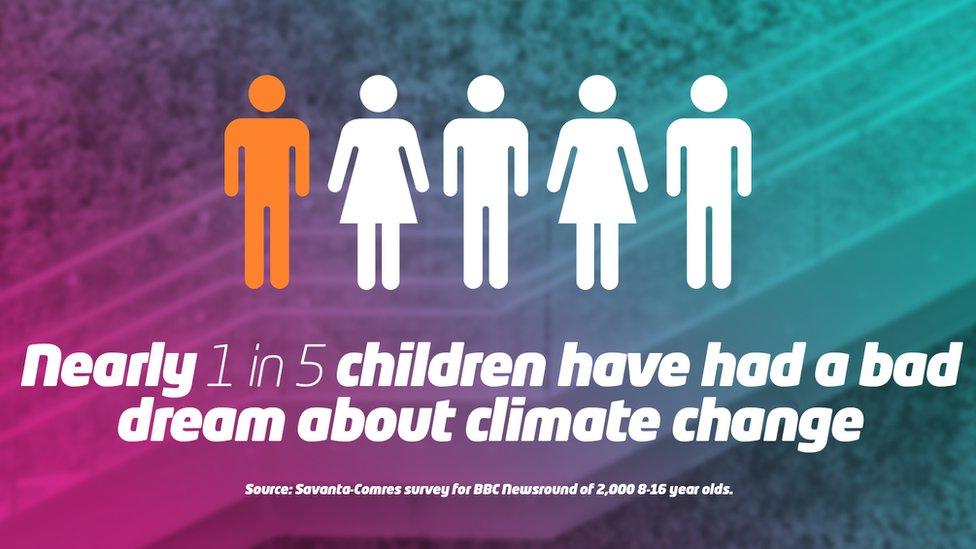
A similar number (17%) told us that they have had their sleeping and eating habits affected by their concerns.
Are adults listening enough to young people?
Climate Anxiety: Are adults listening to young people and do protests work?
One of the biggest movements of 2019 was the "Fridays for future" campaign led by Greta Thunberg.
The teenage environmental activist inspired a series of school strikes around the world. They led to children leaving school to try to make their voices heard by making signs and joining marches, calling on world leaders to do more to protect the planet and to take bolder action to try to cut climate change.
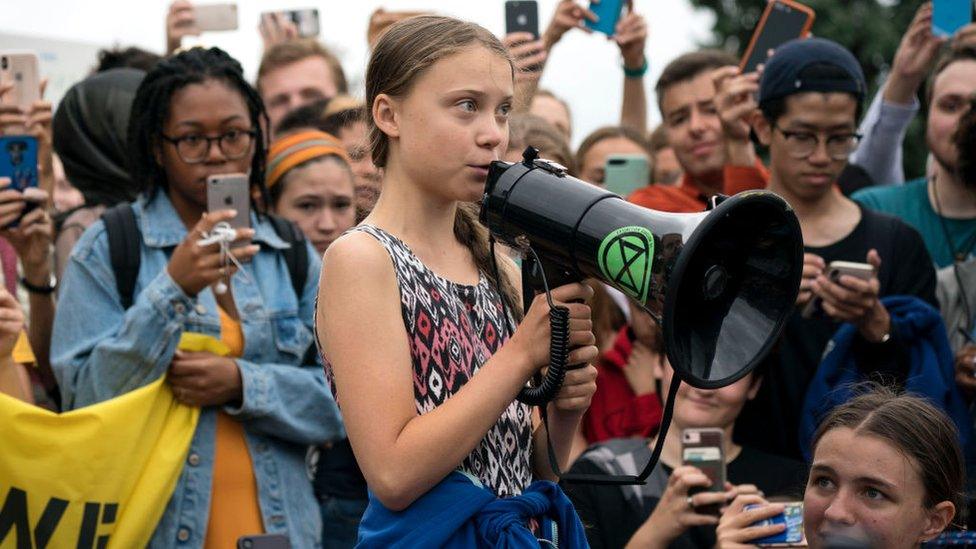
Despite millions of young people all around the world taking part in these protests it's clear that you feel that it's not making the difference you hoped it would.
The survey reflects feelings of frustration in young people towards what adult are doing - or not doing.
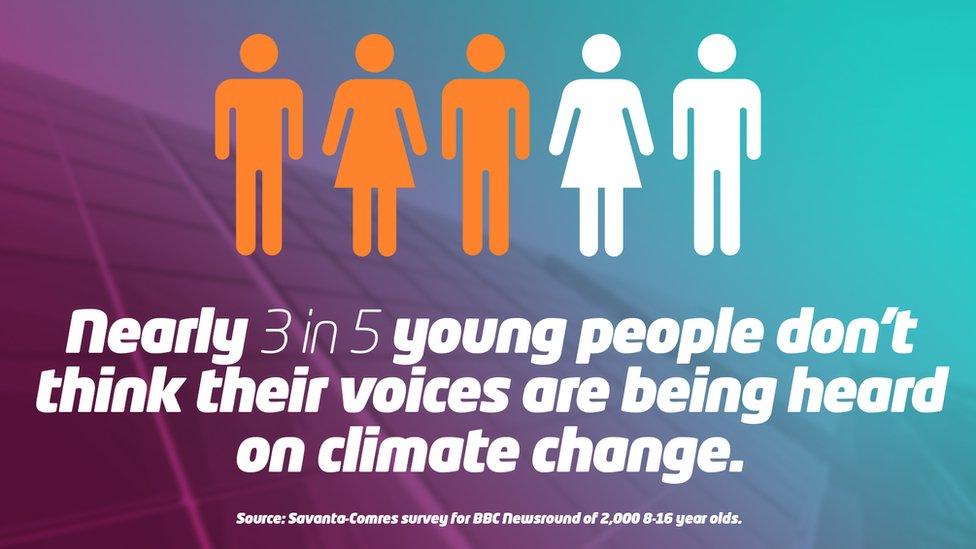
More than half (59%) of them don't think their voices are being heard on climate change.
Nearly two thirds (64%) don't believe people in power are listening to them enough when they do talk about it.
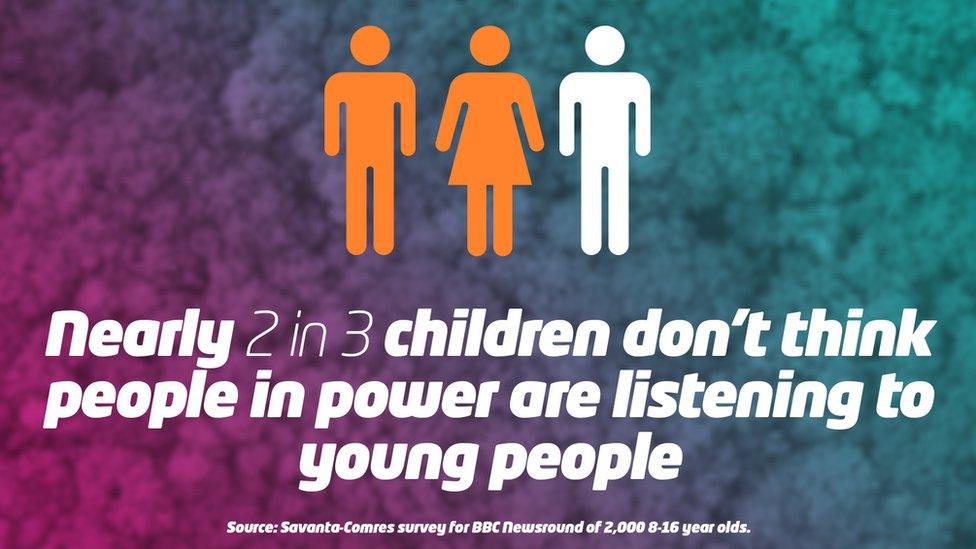
But when asked about the action being taken by grown-ups to tackle the problem, more than two in five (41%) said they don't trust adults to tackle the challenges that climate change presents.
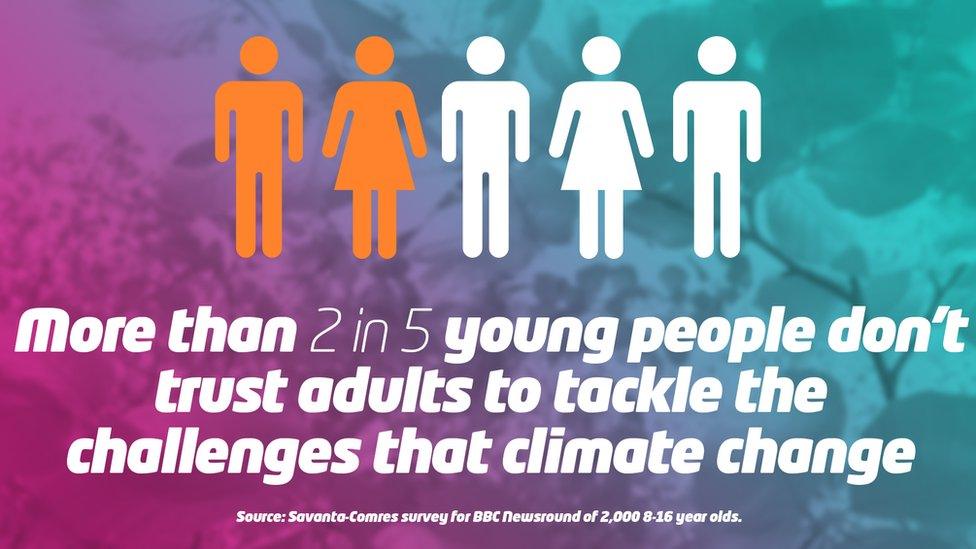
What is 'climate anxiety'?
One of the reasons we did the survey was that experts have told us they've seen a rise in the number of young people they see who say worries about climate change are making them anxious about the future.
Susan Clayton is a professor of psychology and environmental studies at the College of Wooster in Ohio, USA. She says: "We can say that a significant proportion of people are experiencing stress and worry about the potential impacts of climate change, and that the level of worry is almost certainly increasing."
Climate Anxiety: Five tips to deal with your worries about climate change
Although it's not a medical term, lots of researchers call this feeling eco-anxiety or climate anxiety.
Feeling anxious can happen when we feel nervous, frightened or uneasy about something. It's normal to feel this way sometimes but when it lasts for a long time or it happens too often it's important to talk to someone.
We worked with one expert, child psychologist Emma Citron, who told us that part of the difficulty for young people is the scale of the problem of climate change, the challenges tackling it presents and what often seems like the slowness of the response shown by governments and world leaders.
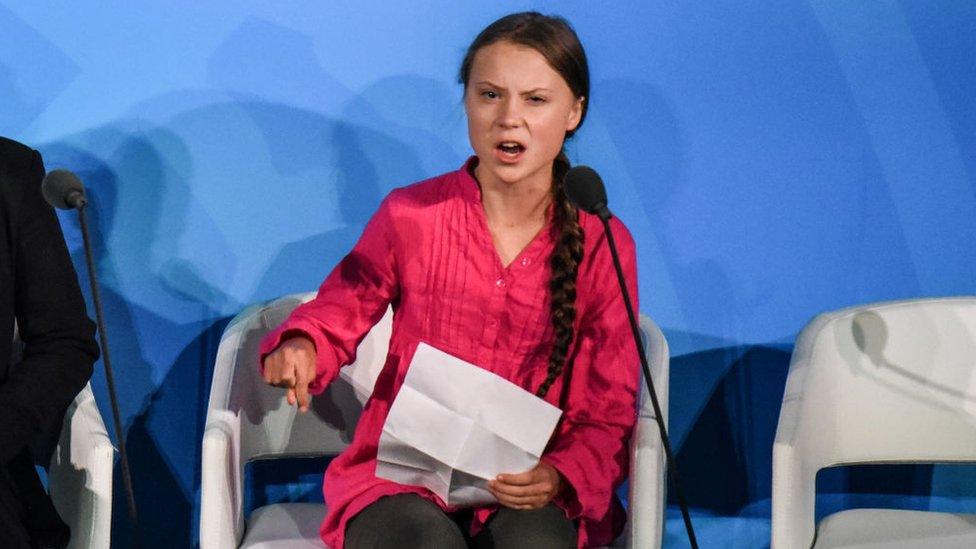
Greta Thunberg has been making the voice of young people heard all over the world and has inspired many children to become more involved in protecting the environment
Young people are clearly worried about climate change and their futures as this survey reveals. Public figures like David Attenborough and Greta Thunberg have helped young people to voice their worries and we have to make sure that we as adults listen to them and empower them by giving talks at school and in their communities to help them become involved in positive change
When you read stories about fires in the Amazon and Australia, ice melting in the Antarctic and Arctic, sea temperatures rising and plastic destroying wildlife in the oceans, the scale of the problem can sometimes make the idea of dealing with it feel hopeless.
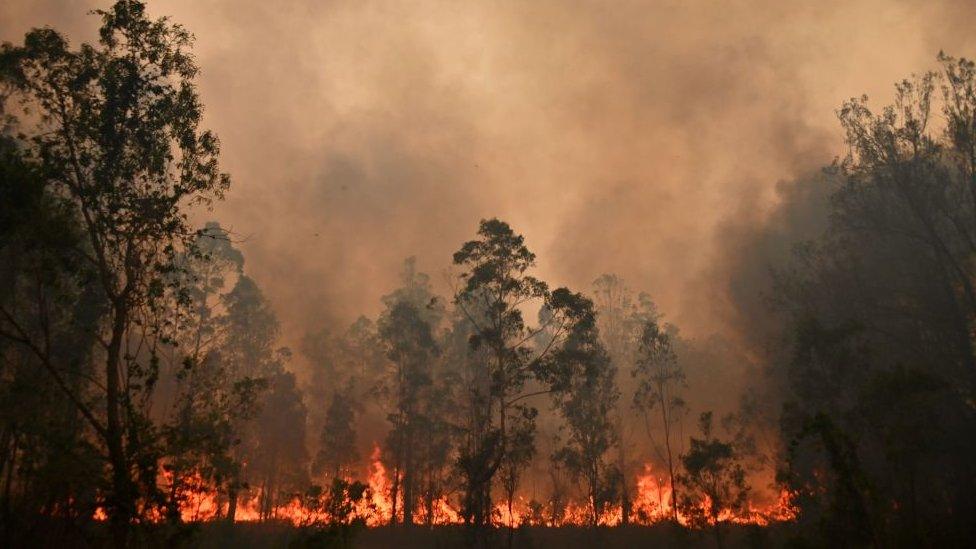
Huge fires in the Amazon rainforest and the Australian bush have been big news stories in the last year
"We need to support young people not to feel hopeless but rather to present to them hopeful and balanced messages about their futures and ensure that they get the right professional help if their anxiety is unduly high," Emma says.
These are serious issues, but it's important to remember that there are also lots of examples of real measures being taken to try to rise to the challenge.
There is a general feeling that the future is so uncertain and it's extremely hard to live with.
Are there ways to feel less worried?
If your feelings about the environment are regularly stopping you from going out and enjoying yourself and are affecting the way you live your life then it's important that you speak to someone.
Your first contact should probably be an adult you trust, such as a parent, teacher or counsellor. You can also contact Childline - a counselling charity for people aged 18 and under - on 0800 1111 for free at any time.
But psychologists also say that taking actions in your own life, however small, can help relieve feelings of anxiety or helplessness - in addition to the positive difference these small actions make to the environment.
• Talk to an adult you trust if you feel your worries about climate change are affecting your life too much and making you unhappy
• Be involved in positive change - small efforts can make a difference and if you can't control the rest of the world it's easier to control what you do in your life! This might include walking, cycling and taking public transport to get around, and thinking about sustainability in your own life.
• Join a campaign group or work with friends to build support for causes you believe in - it's great to work with others and have their support. Joining groups also provides a voice for people concerned about the changing climate
• Encourage your school or family to be more eco-friendly. Seeing the ways you can influence others can help you feel more optimistic about making a difference.
• Don't compare yourself to others! Not everyone can campaign on a world stage like Greta Thunberg and you don't need to feel guilty for not doing as much as her. You can make changes in your own life and the lives of those around you and make a positive impact that way.
- Published3 March 2020
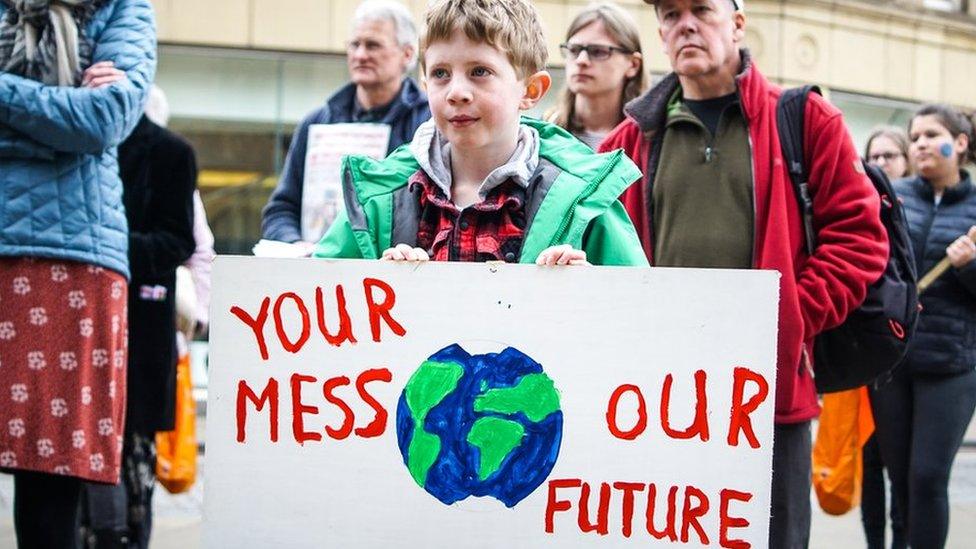
- Published23 September 2019
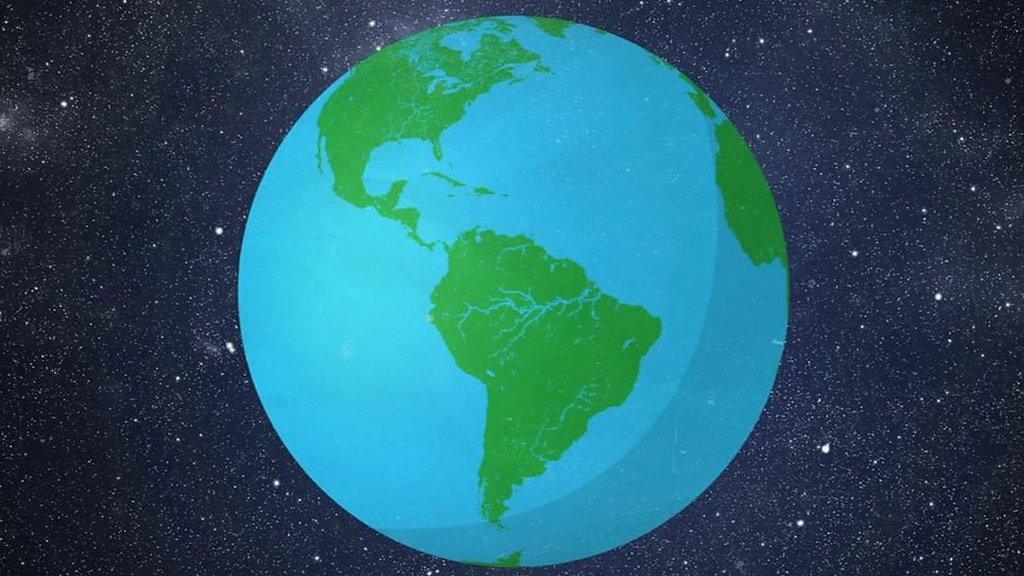
- Published23 September 2019
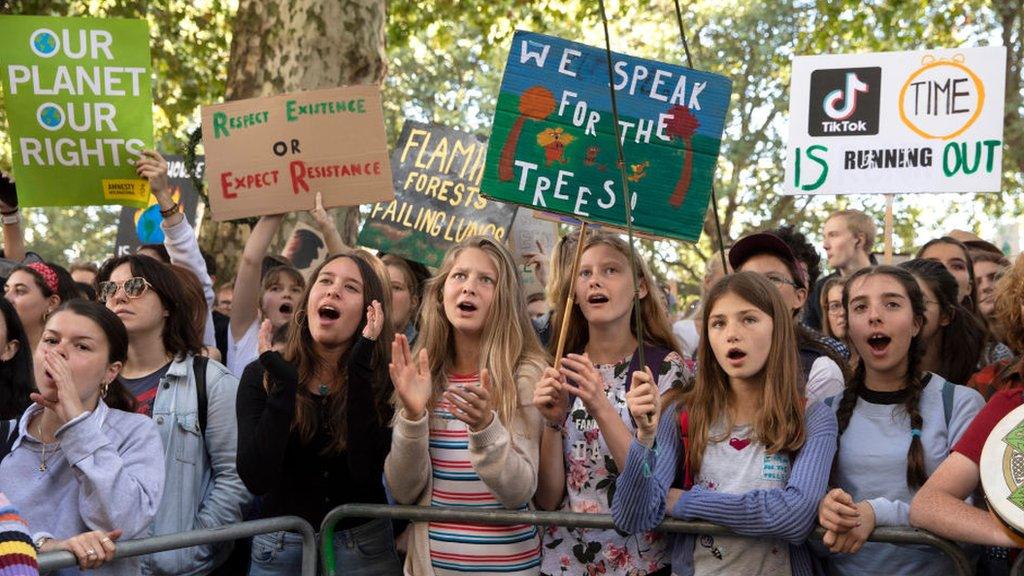
- Published25 September 2019
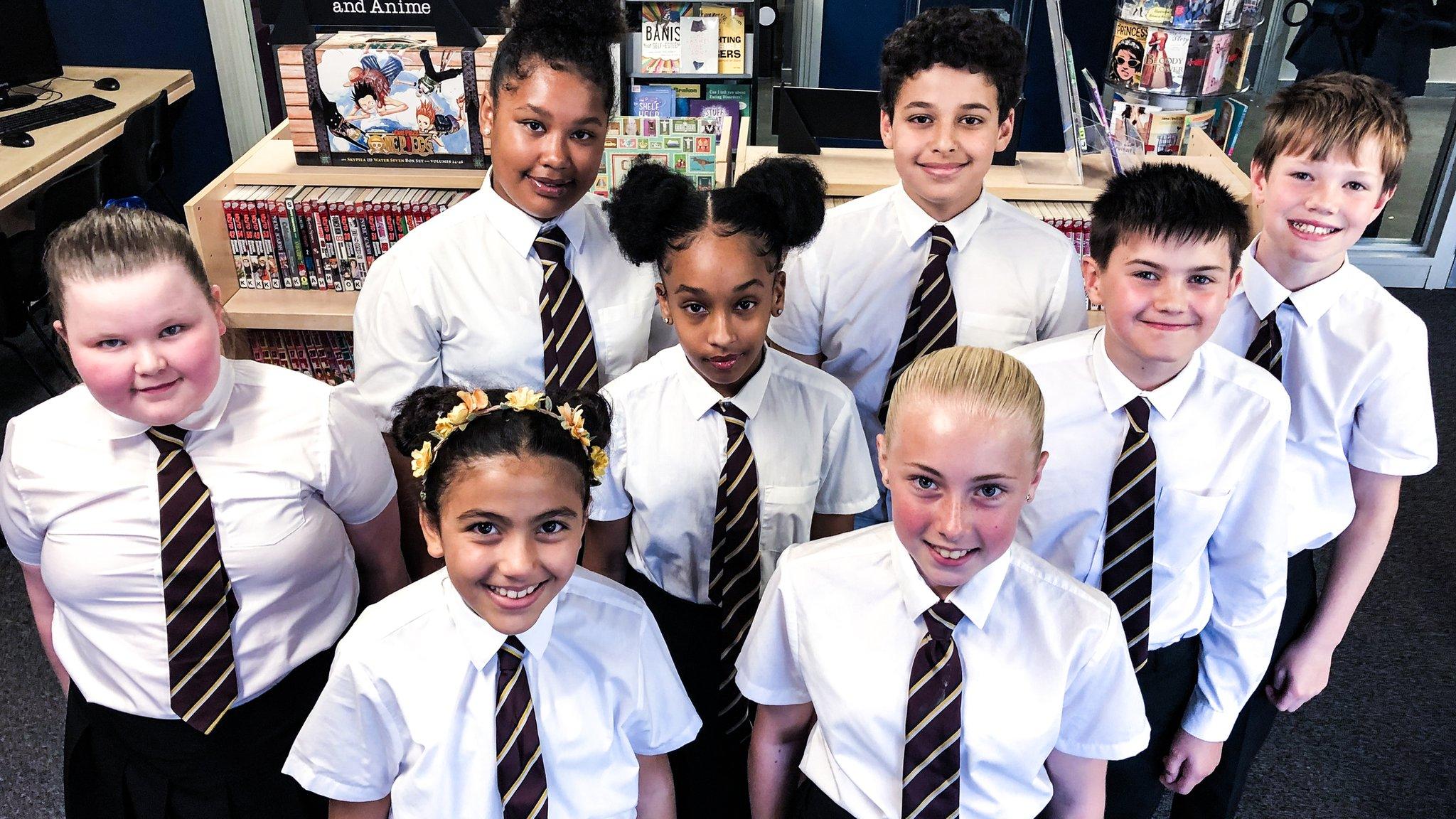
- Published17 October 2018
